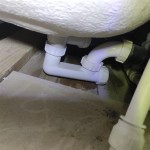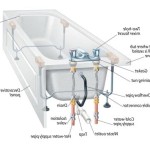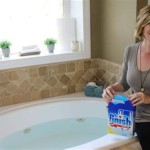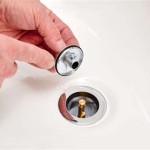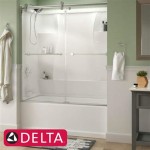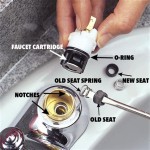How Much Does Bathtub Resurfacing Cost?
Bathtub resurfacing, also known as reglazing or refinishing, offers a cost-effective alternative to replacing an old, worn-out bathtub. This process involves repairing and coating the existing tub with a new finish, restoring its appearance and extending its lifespan. Understanding the factors influencing resurfacing costs helps homeowners budget effectively for this renovation project.
Factors Influencing Bathtub Resurfacing Costs
Several key factors contribute to the overall cost of bathtub resurfacing. These include:
- Size and type of bathtub: Larger tubs or those with complex designs require more materials and labor, increasing the cost. The material of the original tub, such as cast iron, steel, or fiberglass, can also affect the preparation process and therefore the price.
- Condition of the bathtub: A tub with significant damage, like deep cracks or extensive rust, requires more extensive repairs before resurfacing, adding to the labor costs.
- Resurfacing method: Different resurfacing methods exist, each with varying costs. Spray-on applications are generally more common and less expensive than bathtub liners, which involve custom-fitting a new acrylic shell over the existing tub.
- Location: Labor costs vary geographically. Resurfacing services in metropolitan areas often command higher prices than those in rural locations.
- Refinishing materials: The type and quality of the resurfacing materials used can influence the project’s overall cost. Premium, more durable materials typically come at a higher price point but can offer increased longevity.
- Additional services: Some resurfacing projects might include additional services like chip repair, crack repair, or non-slip surface application, influencing the final price.
Average Bathtub Resurfacing Costs
While specific costs depend on the previously mentioned factors, homeowners can expect to pay between $300 and $600 for a standard bathtub resurfacing project. This price typically includes the cost of materials, labor, and basic repairs. More extensive repairs or premium materials can increase the cost up to $1,000 or more.
Cost Comparison: Resurfacing vs. Replacement
One of the primary advantages of bathtub resurfacing is its cost-effectiveness compared to a full bathtub replacement. Replacing a bathtub can involve significant demolition, plumbing, and tiling work, resulting in costs ranging from $2,000 to $10,000 or more. Therefore, resurfacing offers substantial savings, especially for homeowners on a tighter budget.
DIY vs. Professional Resurfacing
While DIY resurfacing kits are available, professional resurfacing is generally recommended. Professionals have the expertise, equipment, and experience to ensure a high-quality, long-lasting finish. DIY attempts can result in uneven coatings, peeling, and other issues, potentially costing more in the long run due to necessary rework.
Choosing a Bathtub Resurfacing Contractor
Selecting a reputable and qualified contractor is crucial for a successful resurfacing project. Homeowners should consider the following when choosing a contractor:
- Experience and licensing: Verify the contractor's experience in bathtub resurfacing and ensure they possess the necessary licenses and insurance.
- References and reviews: Check online reviews and request references from previous clients to assess the contractor's reputation and workmanship.
- Written estimates: Obtain detailed written estimates from multiple contractors outlining the scope of work, materials, and costs.
- Warranties and guarantees: Inquire about warranties or guarantees offered on the resurfacing work and materials.
Benefits of Bathtub Resurfacing
Aside from cost savings, several benefits make bathtub resurfacing an attractive option for homeowners:
- Updated Appearance: Resurfacing transforms a worn-out bathtub into a like-new fixture, enhancing the overall bathroom aesthetic.
- Increased Durability: The new coating provides a durable, water-resistant surface, protecting the tub from further wear and tear.
- Faster Completion Time: Resurfacing projects typically take only a few days to complete, minimizing disruption to daily routines compared to lengthy bathtub replacements.
- Eco-Friendly Option: Resurfacing avoids the disposal of an old bathtub, contributing to a more sustainable renovation approach.
Maintaining a Resurfaced Bathtub
Proper maintenance helps prolong the lifespan of a resurfaced bathtub. Homeowners should follow these maintenance tips:
- Avoid abrasive cleaners: Harsh chemicals and abrasive scrubbing pads can damage the resurfaced finish. Opt for gentle, non-abrasive cleaners.
- Rinse after each use: Rinsing the tub after each use prevents soap scum and mineral buildup.
- Avoid dropping heavy objects: Dropping heavy objects can chip or crack the resurfaced finish.
By understanding the factors impacting bathtub resurfacing costs, homeowners can make informed decisions and allocate their budget effectively for this valuable bathroom renovation project.

Bathtub Refinishing Costs Maryland Tub Tile

The Cost Of Resurfacing A Bathroom Shower Bathtub Tiles

Services Aaa Resurfacing

How Much Does Bathtub Resurfacing Cost

Cost Of Bathtub Resurfacing Serviceseeking Com Au

4 Points For Replacing Or Resurfacing Your Bathtub

Tub Resurfacing Ballpark Estimator Custom And Tile

Bathtub Refinishing Cost 2024 Guide Angi

1 Day Baths Service Today

How Much Does Bathtub Refinishing Cost Family Handyman
Related Posts


